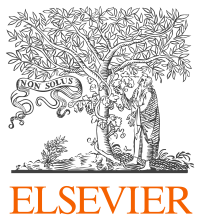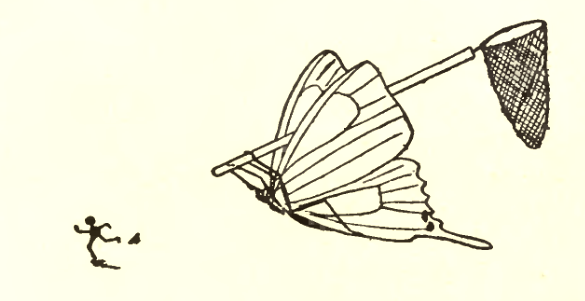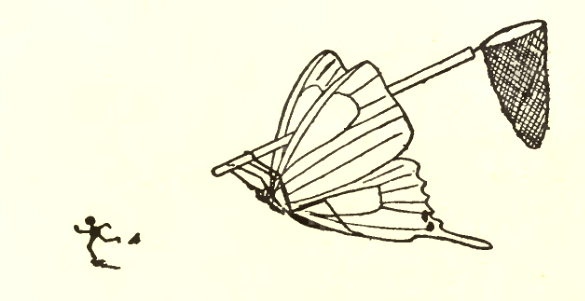What Caught Our Attention: Sadly, it’s not uncommon for researchers to mistake the identity of what they’re working with — but not everyone comes clean and works to transparently correct the record. So it’s nice to see some authors among a group based in the US and India take the initiative to retract their paper after realizing they had based some of their conclusions on the wrong species of aphid. Continue reading Caught Our Notice: Oops, wrong species
“GOOD NEWS!…we were able to retract your article:” Journal
 A paleontology journal has retracted a recent paper after discovering it had published the uncorrected version of the manuscript.
A paleontology journal has retracted a recent paper after discovering it had published the uncorrected version of the manuscript.
The mistake occurred after the authors submitted revisions to the manuscript without tracking the changes, prompting the publisher to believe nothing had been changed and publishing the previous version. The journal initially told the authors it planned to publish an erratum that described the mistake as a production error, but then retracted the paper—seemingly without consulting the authors. However, the authors said they were happy with the outcome.
Glenn Brock, an author on the Journal of Paleontology paper, told Retraction Watch: Continue reading “GOOD NEWS!…we were able to retract your article:” Journal
Questions swirl around CNRS director’s decision to step down early

Today, a French council was set to confirm the new head of a prominent research institute, the National Center for Scientific Research (CNRS). But the appointee took the job a few days early, after the interim director stepped down last week — and the speculation about why she left hasn’t stopped ever since.
An official announcement from the French Ministry of Higher Education, Research and Innovation, which runs the CNRS, said Anne Peyroche would be replaced by her expected successor, computer scientist Antoine Petit. Although there have been discussions about some of Peyroche’s work on PubPeer (some of which the authors have responded to, assuaging at least one critic), the announcement provided no reason for the new timetable; a news story in Le Figaro cited health reasons.
A spokesperson for the CNRS told Retraction Watch:
Continue reading Questions swirl around CNRS director’s decision to step down early
“The most terrible experience of my life:” Authorship dispute leads to lawsuit
 A journal has retracted a 2014 paper because of an authorship dispute that became the subject of litigation.
A journal has retracted a 2014 paper because of an authorship dispute that became the subject of litigation.
Last year, the Allegheny Health Network in Pittsburgh requested the paper be retracted to resolve the dispute. The Journal of Applied Biomaterials & Functional Materials retracted the paper in October.
According to the retraction notice, the principal investigator of a clinical trial on which some of the study is based was not included as a co-author, and claimed he had not “validated the accuracy of the data.”
The notice does not mention a lawsuit, but a letter from the authors’ research institution does.
Continue reading “The most terrible experience of my life:” Authorship dispute leads to lawsuit
Researcher at Japan stem cell institute falsified nearly all images in 2017 paper

An investigation by Kyoto University in Japan has found a researcher guilty of falsifying all but one of the figures in a 2017 stem cell paper.
Yesterday, Kyoto University announced that the paper’s first author, Kohei Yamamizu, had fabricated and falsified data in the Stem Cell Reports paper. According to the investigation report, none of the other authors were involved in the data manipulation.
Yamamizu works at the Center for iPS cell Research and Application (CiRA) at Kyoto University, directed by Shinya Yamanaka, a Nobel Prize winner for his pioneering work in stem cell biology.
A spokesperson for the journal told us that the authors disclosed the problems last week and Stem Cell Reports will be retracting the paper, published last February.
In the university’s official statement, Yamanaka said: Continue reading Researcher at Japan stem cell institute falsified nearly all images in 2017 paper
Author under fire on PubPeer issues puzzling correction to chem paper
 A researcher whose work has been heavily questioned on PubPeer has corrected a figure on a 2015 paper in Talanta — but the text of the correction doesn’t match the actual changes.
A researcher whose work has been heavily questioned on PubPeer has corrected a figure on a 2015 paper in Talanta — but the text of the correction doesn’t match the actual changes.
Recently, Rashmi Madhuri at the Indian Institute of Technology (Indian School of Mines) in Dhanbad corrected a 2015 paper about a diagnostic sensor that uses nanoparticles, noting that there was a “small error” in the legend describing figure 1. But the corrected image bears the same legend it had before, and instead swapped a panel of the figure that had been questioned on PubPeer.
Here’s another puzzling element to the story: Gary Christian at the University of Washington, one of the editors-in-chief of the journal, tells us he doesn’t “recall being aware of the corrigendum:”
Continue reading Author under fire on PubPeer issues puzzling correction to chem paper
Fracking paper overstated size of methane leak from Marcellus Shale, earning retraction

Last spring, a group of environmental scientists reported an impressive finding: Hydraulic fracturing (better known as fracking) in the Marcellus Shale region of the eastern United States was leaking enough methane to power a city twice the size of Washington, D.C. (We didn’t come up with that comparison, apt though it may be.)
Turns out that wasn’t true. Continue reading Fracking paper overstated size of methane leak from Marcellus Shale, earning retraction
Caught Our Notice: When data went missing, lab tech filled in the gaps

What Caught Our Attention: When a reader noticed that six panels in one figure from a 2013 paper looked a little fishy, the authors decided to take a closer look. Following an internal investigation, the authors learned that a laboratory technician had manipulated the panels after realizing some of the original data had been lost. Continue reading Caught Our Notice: When data went missing, lab tech filled in the gaps
Author retracts 2009 chemistry paper with “heavily doctored” images
 A researcher has retracted a 2009 chemistry paper after discovering that a figure had been “inappropriately edited.”
A researcher has retracted a 2009 chemistry paper after discovering that a figure had been “inappropriately edited.”
According to the journal, a reader brought the images in question in Figure 1 to the editors’ attention last September. Timothy P. Lodge, distinguished professor at the University of Minnesota in Minneapolis — and editor of Macromolecules through December 2017 — told Retraction Watch:
Continue reading Author retracts 2009 chemistry paper with “heavily doctored” images
Weekend reads: Why scientists respond badly to criticism; hidden retractions; journal cancels issue
 The week at Retraction Watch featured a researcher whose ideas were stolen at least three times, a victory for Crossfit in its attempt to reveal peer reviewers, and the second delisting of a cancer journal by an index that praised it just months ago. Here’s what was happening elsewhere: Continue reading Weekend reads: Why scientists respond badly to criticism; hidden retractions; journal cancels issue
The week at Retraction Watch featured a researcher whose ideas were stolen at least three times, a victory for Crossfit in its attempt to reveal peer reviewers, and the second delisting of a cancer journal by an index that praised it just months ago. Here’s what was happening elsewhere: Continue reading Weekend reads: Why scientists respond badly to criticism; hidden retractions; journal cancels issue
 Title:
Title: